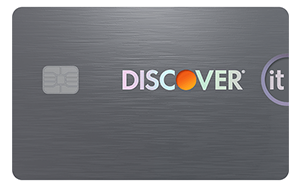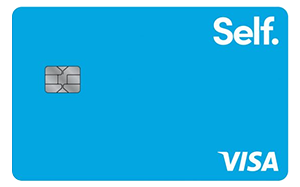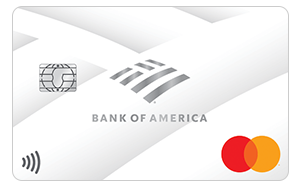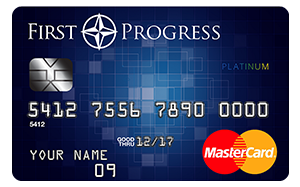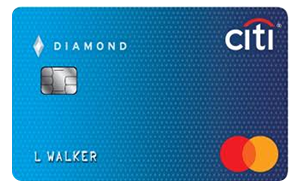If your credit score has been damaged by late payments or other negative marks on your credit report, don’t panic. It’s true that a bad credit score can seriously damage your quality of life, but no matter how low your score has slipped, it’s possible to rebuild it, as long as you use the right strategies.
Table of Contents
Quick ways to rebuild your credit
Your credit score takes time to improve. That’s because your score is supposed to reflect your ability to manage your credit accounts over time.
However, there are three ways to improve a damaged credit score quickly:
1. Reduce the amount of credit you’re using
In general, reducing your spending across your credit card accounts will boost your credit score. This is because one of the most influential factors that goes into calculating your credit score is the percentage of your available revolving credit that you’re using, otherwise known as your credit utilization rate or debt-to-credit ratio.
The Consumer Financial Protection Bureau recommends using under 30% of your available credit, and VantageScore has suggested that the ideal credit utilization rate is below 10%. 1 2
Here are a few easy ways to reduce your credit utilization rate:
- Spend less on your credit accounts
- Don’t overuse any one credit card
- Ask for an increase to your credit limit on one of your cards
- Open a new revolving credit account to increase your available credit
2. Become an authorized user
When you become an authorized user on someone else’s credit account, that person is essentially vouching for your reliability as a borrower.
Credit card issuers usually add the primary cardholder’s account history to your credit report, so when you become an authorized user, you instantly build up a history of on-time payments. As a result, you could see a score improvement of 45–64 points. 3
Pitfalls to watch out for
Before committing to becoming an authorized user, make sure you’re choosing someone with a good credit score. Being an authorized user can hurt your credit as much as it can help it if the primary cardholder misses a payment.
Equally, you should contact the card issuer before becoming an authorized user to make sure they’re willing to add the primary cardholder’s account history to your credit report. If they don’t, there won’t be any benefit to your score.
3. Get credit for paying your bills
One of the fastest ways to rebuild credit is to add payment records to your credit report for bills that you’re already paying, such as utility bills and rent. Doing so will immediately strengthen your credit history.
There are several services that allow you to do this:
- Experian Boost: Experian’s service allows you to add your payments for your cell phone plan, utilities, and streaming services to your Experian credit report at no cost. They claim that users see an average score increase of 13 points when they sign up. 4 However, this won’t affect your credit scores and reports with the two other major credit bureaus (Equifax and TransUnion).
- Rent-reporting services: Believe it or not, you can build credit by paying rent. Simply pay a third-party rent-reporting service to get your past and future rent payments added to your credit reports. For instance, LevelCredit charges a one-off fee of $49.95 to add your rental history over the last two years onto your credit report (along with your phone and utility bills). This is safer than trying to indirectly get credit for your payments by using a credit card to paying your rent.
Long-term habits to rebuild your credit
There’s a limit to what you can do to build credit in the short term. Most of the improvement you’ll see will happen gradually over time.
To get your credit back on the right track, follow these tips.
4. Always pay your bills on time
Because your payment history is the most important factor contributing to your credit score (worth 35% of your final score in FICO’s scoring models and 40% in VantageScore’s models), paying all your bills on time is the best way to rebuild your credit.
One late payment––regardless of whether you owe $1 or $1,000––can seriously set your credit score back. For instance, a 30-day late payment can take more than 80 points off your credit score, and the impact is much worse if the payment becomes 60 or 90 days overdue. 5
If you forget to pay one of your bills on time, don’t worry. Creditors don’t usually report overdue payments until they’re more than 30 days late. If you can pay your overdue bill before it’s reported, your credit score won’t drop, although you may still have to pay a late fee. 6
If you keep forgetting to pay bills, consider setting up autopay
To make sure you never miss a payment, sign up for autopay. You won’t have to worry about forgetting a bill because your bank will automatically transfer your money to your creditors. Some creditors may even give you incentives (such as discounts) for using autopay
5. Get a secured credit card
Secured credit cards are an excellent tool for building credit. Unlike unsecured credit cards, they’re backed by a deposit you pay upfront, and you can generally only spend up to that amount.
The advantage of a secured credit card is that they’re widely available credit cards for bad credit holders. That’s because your security deposit will act as collateral that your card issuer can keep if you fail to pay them back, which means the card poses less risk to them than an unsecured card or unsecured loan.
Your card issuer will report all of your payments to the credit bureaus. This gives you the opportunity to strengthen your payment history without the risk of spending beyond your means. All you need to do is make sure that you make all of your payments on time.
| Credit Card | Best For | Credit Score | Annual Fee | Welcome Bonus | |
|---|---|---|---|---|---|
| Secured Overall | 300–669 | $0 | Cashback Match | ||
| No Credit Check | 300–669 | $35 | |||
| Beginners | 300–669 | $25 | |||
| No Annual Fee | 300–669 | $0 | |||
| Bad Credit | 300–669 | $49 | |||
| Rebuilding Credit | 300–669 | $0 | |||
6. Take out a credit-builder loan
Similar to secured credit cards, credit-builder loans are a financial tool designed to help people with poor or no credit establish a payment history. They’re low risk for both you and your lender because you don’t receive the funds upfront. Instead, they’re kept in a savings account that you won’t have access to until you’ve made all of your payments.

In addition to strengthening your payment history when your payments are on time, credit-builder loans can improve your credit mix (the variety of different types of credit accounts you have) if you have no other installment loans. This can instantly improve your score.
7. Don’t close old accounts
It’s always a good idea to keep your revolving credit accounts open, unless you can’t afford to do so (e.g., because the annual fees are high or you can’t help overspending). The reason for this is that each revolving account adds to the total amount of credit available to you. The credit scoring models reward consumers who use less of their available credit because it demonstrates self-control and financial stability.
What’s more, each account contributes to the length of your credit history, which is another major factor that influences your credit score. Older accounts are better for your credit score because they demonstrate that you have more experience managing credit, but after an account has been closed, it’ll disappear from your credit report after 7 years (if delinquent) or 10 years (if in good standing) and stop contributing to your credit history. 7
How long does it take to rebuild your credit?
The amount of time it’ll take to rebuild your credit depends on several factors, including your credit history and what damaged your credit in the first place. Some negative items on your credit report are more harmful than others and take longer to recover from.
For example, hard inquiries stop affecting your credit score after just a few months, whereas a bankruptcy––which is the most damaging derogatory mark you can get––could take years to recover from. 8
Most negative items can stay on your credit report for 7 years (10 years for some bankruptcies), but their effects diminish over time, and most items have little impact on your credit score after two years. 8
As you’re rebuilding your credit, monitor your credit score and credit reports to ensure that you’re making progress. You can access your credit reports from all three of the major credit bureaus (Experian, Equifax, and TransUnion) for free at AnnualCreditReport.com. It’s best to use this website and no others—AnnualCreditReport is safe and legitimate, but many other similar websites are scams.
Be vigilant about monitoring your credit and paying your bills on time, and you can be sure your score will improve over time. It might take months or years to fully recover, but once it does, you can enjoy all the benefits of having good credit.
Takeaway: There are ways to quickly rebuild credit, but major improvement takes time.
- The best way to rebuild your credit in the short term is to use less credit, become an authorized user, and add your utility and rent payments to your credit report.
- Paying your bills on time and keeping your credit accounts open are both crucial for rebuilding credit in the long term. You can also get a secured credit card or credit-builder loan.
- Your credit score will probably recover within a couple of years after a negative event, although severely damaging items like bankruptcies may take longer to recover from.

